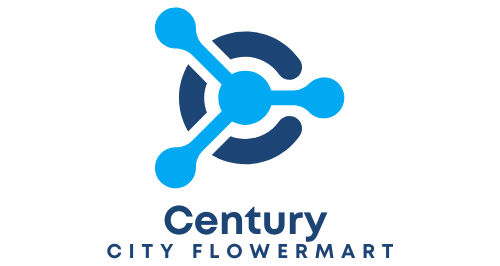How to Develop a Personalized Nutrition Plan with AI?

In the age of digital transformation, artificial intelligence (AI) is playing an increasingly critical role in many areas, from commerce to communication, from healthcare to entertainment. One field that is particularly benefiting from this digital revolution is that of nutrition. For many of us, maintaining a balanced diet is a challenge, but AI is now making it easier to create individualized diet plans, customized to suit the dietary preferences and health needs of each person. But how exactly can AI help us develop a diet tailored to our needs? Let us delve deeper into the subject.
The Importance of Personalized Nutrition
For a long time, the concept of a healthy diet was a one-size-fits-all proposition. However, as our understanding of nutrition and health evolves, we are discovering that there’s no such thing as a universally optimal diet. Every individual’s body is unique, with different nutritional needs, metabolism rates, and food preferences. Consequently, personalized nutrition has become a significant focus area in the health and wellness industry.
In the same genre : Why are eggs vaccinated?
Personalized nutrition involves tailoring dietary recommendations to the individual based on their unique physiological and genetic makeup, lifestyle, and diet preferences. A personalized approach can lead to more effective diet planning and improved health outcomes.
The Role of AI in Personalized Nutrition
Artificial Intelligence is revolutionizing the way we approach personalized nutrition. It brings in a level of precision, sophistication, and convenience that was previously unattainable. With AI, it’s possible to analyze an individual’s dietary data, health metrics, and food preferences to create truly personalized meal plans.
In the same genre : What’s the Impact of Ultra-Fast Broadband on UK Rural Economies?
AI-powered nutrition apps, for instance, can track your food consumption, exercise data, and even sleep patterns. They utilize machine learning algorithms to analyze this data, understanding your eating habits better and offering recommendations to improve your diet. These apps can provide real-time feedback and adapt to your changing needs over time, making nutrition planning both user-friendly and dynamic.
Creating a Personalized Nutrition Plan with AI
Planning a personalized diet with AI begins with data collection. Many AI-powered nutrition apps require users to input certain metrics like age, weight, height, and physical activity levels. The user may also need to answer questions about dietary preferences and health goals.
Once the app has this information, it can apply AI algorithms to analyze the data and generate a meal plan. For instance, if a user is trying to lose weight, the app might recommend a calorie-deficit diet rich in proteins and fibers while limiting carbs and fats. The recommendations consider not just the nutritional needs, but also the user’s preferences to ensure the plan is both healthy and enjoyable.
The Future of AI in Personalized Nutrition
As AI continues to evolve, we can expect it to play an even more significant role in personalized nutrition. With advancements like deep learning and predictive analytics, AI systems will be able to make more accurate and insightful dietary recommendations.
For instance, integration of genomic data could allow these systems to understand how an individual’s genetic makeup interacts with different foods and nutrients. This would enable truly personalized dietary recommendations that take into account genetic predispositions to certain health conditions.
While we are still in the early stages of AI-powered personalized nutrition, the potential is immense. By combining technological advancements with a better understanding of human nutrition, we are paving the way for a future where each individual can have a diet that is truly tailored to their unique needs and preferences.
The Integration of Gut Microbiome with AI in Personalized Nutrition
The gut microbiome, a community of trillions of bacteria residing in our digestive system, plays a pivotal role in our health. It influences everything from digestion and metabolism to immune response and even mood. Thus, understanding the gut microbiome can provide valuable insights for personalized nutrition.
Many AI-powered nutrition apps have started to integrate gut microbiome data into their algorithms. They analyze this data along with other metrics such as dietary intake, physical activity, and health conditions to make more tailored nutritional recommendations.
For example, an individual with a certain type of gut bacteria might digest carbohydrates faster than others. An AI app taking this into account could recommend a diet that avoids excess intake of carbohydrates, thereby potentially preventing weight gain and related health problems.
On the other hand, an individual with a different gut microbiome makeup might have a higher tolerance for dietary fibers. In this case, the AI app might suggest a diet high in fiber-rich foods to support gut health and overall wellness.
Machine learning algorithms enable these apps to learn from the data continuously and update the meal plans in real time. As the user’s health state changes, the meal plan changes along with it. This dynamic approach ensures the user always receives dietary recommendations that reflect their current health status and needs.
Conclusion: The Intersection of AI and Personalized Nutrition
There is no doubt that artificial intelligence is revolutionizing personalized nutrition. It’s making meal planning more precise, dynamic, and user-friendly than ever before. It takes into account individual unique characteristics, dietary restrictions and preferences, health goals, and even gut microbiome composition to create truly personalized meal plans.
Moreover, AI-powered nutrition tools not only help individuals achieve their health goals but also educate them about food nutrition. They provide insights into how different foods and nutrients affect their bodies, empowering them to make informed dietary decisions.
As we look to the future, we can expect AI to play an increasingly significant role in personalized nutrition. With continuous advancements in technology, we’re likely to see even more sophisticated AI tools that can provide more accurate and insightful dietary recommendations.
While we’re still in the early stages of AI’s application in personalized nutrition, the potential is immense. As we continue to improve our understanding of nutrition and enhance our technological capabilities, we’re paving the way for a future where everyone can have a personalized diet plan that truly fits their unique needs and preferences. This fusion of health and technology promises to improve our health outcomes and make the pursuit of wellness a more attainable goal for everyone.
